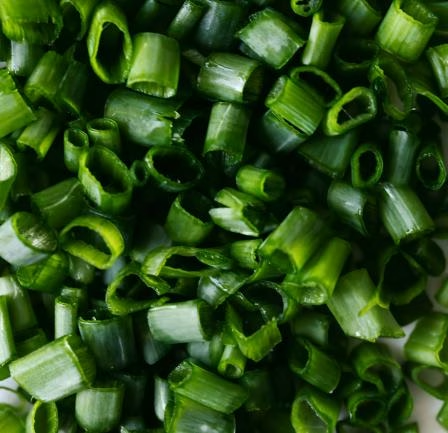Chives are delicious, and their slightly pungent aroma comes from sulfur compounds, which have antibacterial and antioxidant properties. If you enjoy the flavor of chives, learn the key to cooking with them: how to use them to enhance their aroma and maximize their nutritional value. It’s important to understand the nutritional benefits and benefits of chives:
What are the differences between chives, chive greens, and chive flowers?
Chives are available year-round, but spring chives are most delicious, as the saying goes, “Onions in the first month, chives in the second month,” indicating that spring chives are best enjoyed. Can you tell the difference between chives, chive greens, and chive flowers? Chives are the stems and leaves.
Chive greens are harvested when chives are covered during cultivation to prevent them from receiving sunlight, resulting in a lack of chlorophyll production.
This results in a yellowish-white color. Chive flowers, on the other hand, are harvested after the flower buds have formed, with the upper flower stems and buds harvested. The flavors of chives and chive flowers are similar, while the scent of chive greens is softer and more acceptable.
The therapeutic benefits of chives: Boosting immunity, warming the kidneys, and enhancing yang
Chives are best eaten in spring. The sulfur compound propylene sulfide in chives is the source of their slightly spicy, tangy flavor. Sulfur compounds have antibacterial and antioxidant properties. Spring’s temperature fluctuations can easily lead to colds and chills. Chive dishes can help boost immunity, fight inflammation, and support cardiovascular health. They also contain nutrients like vitamin A, which maintains cell growth and strengthens immunity.
Chives have a warming effect, promoting blood circulation, aiding in fever, and strengthening overall health. In Traditional Chinese Medicine, chives are considered to nourish the liver and kidneys, warm the kidneys, and enhance yang, earning them the nickname “yang-raising grass” (“impotence-boosting herb”), a valued ingredient among men.
Afraid of the smell of chives? Reduce the smell with one trick
Chives are available year-round. They’re easy to grow, and if you continue growing them with the roots attached, you can harvest them 5-6 times a year. When selecting, look for bright green, not withered or yellowed, upright stems, and a strong aroma. Soak them in running water and then rinse to remove any dirt, dust, and possible pesticides.
To reduce the odor of chives, blanching them before cooking is somewhat effective. Finely chopped chives release the flavor more easily, making them more intense. Chives pair well with meat, seafood, tofu, and soups. Their irresistible flavor makes them a worthwhile addition to any dish.


Leave a Reply